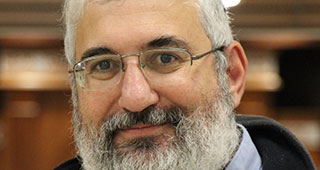- Sections
- Peninei Halakha
- Shabbat and Holidays
- The Laws of Tisha B'Av
The Babylonians conquered the Temple on the seventh of Av and set it ablaze toward evening on the ninth of the month, and it continued burning throughout the tenth. R. Yoĥanan commented that had he been alive at the time, he would have established the fast on the tenth of Av, because most of the Temple burned on that day. Some Amora’im adopted a stringency to fast on both the ninth and the tenth of Av. However, the prophets and the Sages established the fast on the ninth of Av, because the beginning of any calamity is more severe than its continuation, and the calamity of the Temple’s destruction began on the ninth of Av (Ta’anit 29a, y. Ta’anit 4:6). Nonetheless, since the majority of the Temple actually burned on the tenth of Av, the Jewish people refrained from eating meat and drinking wine on that date: the whole day according to Sephardic custom, and until midday according to Ashkenazic custom (sa and Rema 558:1).
Most Aĥaronim maintain that, in addition to abstaining from meat and wine, one may not do laundry or wear freshly laundered clothes, get a haircut, listen to happy music, or bathe in hot water on the tenth of Av. However, one may wash with lukewarm water. Some rule leniently, maintaining that one must only abstain from meat and wine, but may bathe, get a haircut, and do laundry without restriction. Ideally, one should follow the more stringent opinion, but one may be lenient under pressing circumstances.24
Another prevalent custom is to refrain from reciting She-heĥeyanu on the tenth of Av, like during the Three Weeks (Ĥida, Kaf Ha-ĥayim 558:8; see above 8:7-8).
When the tenth of Av falls on a Friday, one may get a haircut, do laundry, and bathe in preparation for Shabbat, starting from the morning. If one is pressed for time, he may even start preparing for Shabbat immediately after Tisha Be-Av ends (mb 558:3; ahs 558:2; in the next section, we will explain the laws of the night after the fast when Tisha Be-Av is postponed).
It is customary to postpone Birkat Ha-levana until after Tisha Be-Av, because the berakha must be recited joyously, and we curtail our joy during the Nine Days. Many people recite it immediately after Ma’ariv at the conclusion of the fast, but ideally it is improper to do so. After all, it is difficult to be happy then, when one has yet to drink, eat, wash his face and hands, or put on regular shoes. Therefore, each community should set a time – about an hour or two after the fast – for reciting Birkat Ha-levana, and in the meantime everyone will have a chance to eat and wash themselves somewhat. This way, they will be able to recite the berakha joyously. Where there is concern that postponing Birkat Ha-levana may cause some people to forget to recite it, the congregation may recite it immediately after the fast, but it is best to take a drink and wash one’s face beforehand.25

13. Yeshiva Students, Soldiers, and College Students
Chapter 13: When and Where to Light Hanuka Candles
Rabbi Eliezer Melamed | Kislev 12 5782

9. Sexual Relations
Chapter 10: The Laws of Tisha Be-Av
Rabbi Eliezer Melamed | Cheshvan 21 5782

7. Sick People Are Exempt from Fasting
Chapter 7: The Minor Fasts
Rabbi Eliezer Melamed | Cheshvan 12 5782

4. The Transition from Shabbat to Tisha Be-Av when it Begins on Motza’ei Shabbat
Chapter 9: The Eve of Tisha Be-Av
Rabbi Eliezer Melamed | Cheshvan 21 5782

HaRav Abba Berman zt”l, an appreciation
Rabbi Yirmiyohu Kaganoff

Milk Spoon in a Meat Sink or Dishwasher
Kashrut in a Nutshell
Rabbi David Sperling

Preparing Food on Yom Tov
Rabbi Yirmiyohu Kaganoff

The Mitzvah of “Duchening” - Birchas Kohanim
Rabbi Yirmiyohu Kaganoff | 5769
Daf Yomi Makkot Daf 9
R' Eli Stefansky | 19 Nisan 5785






